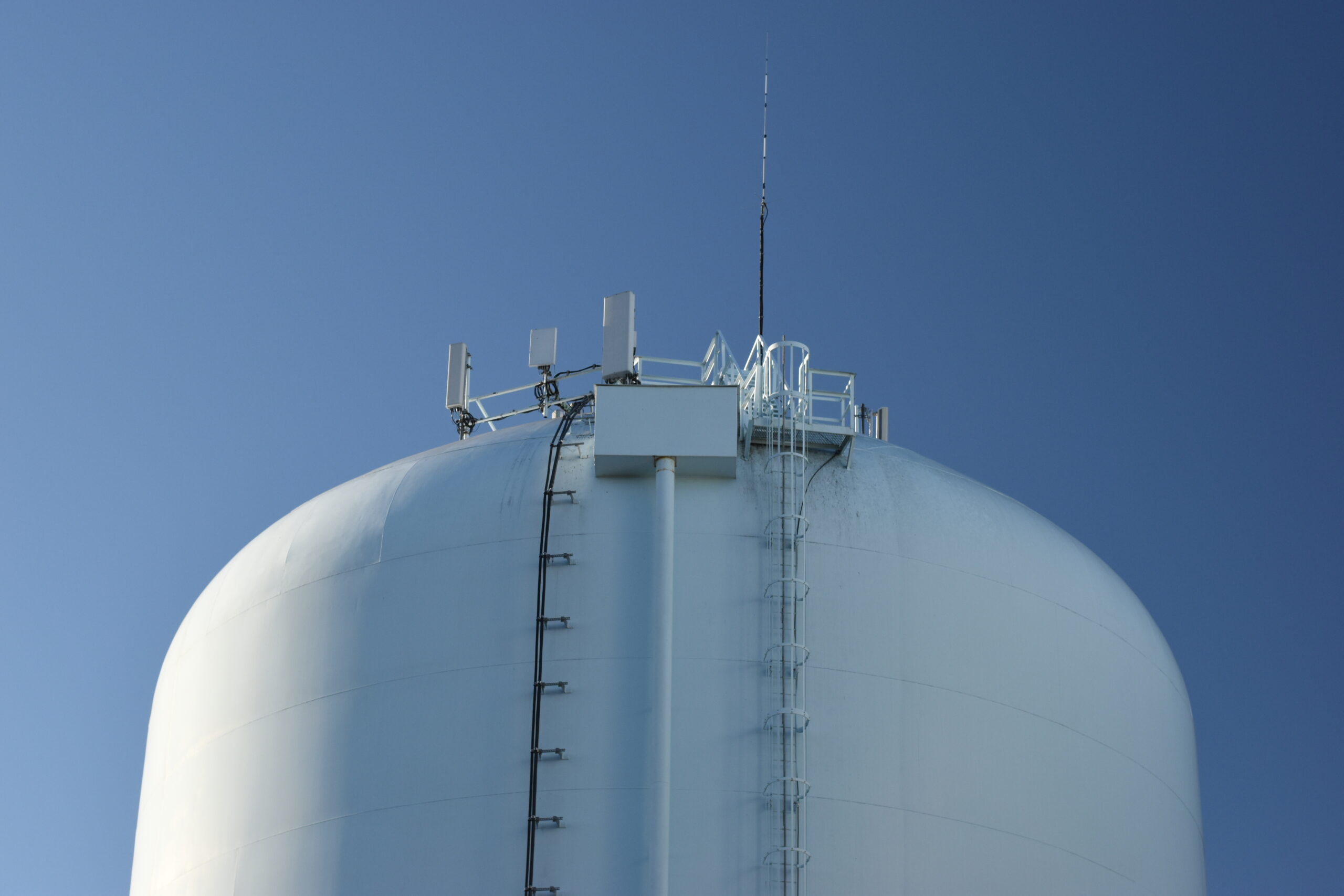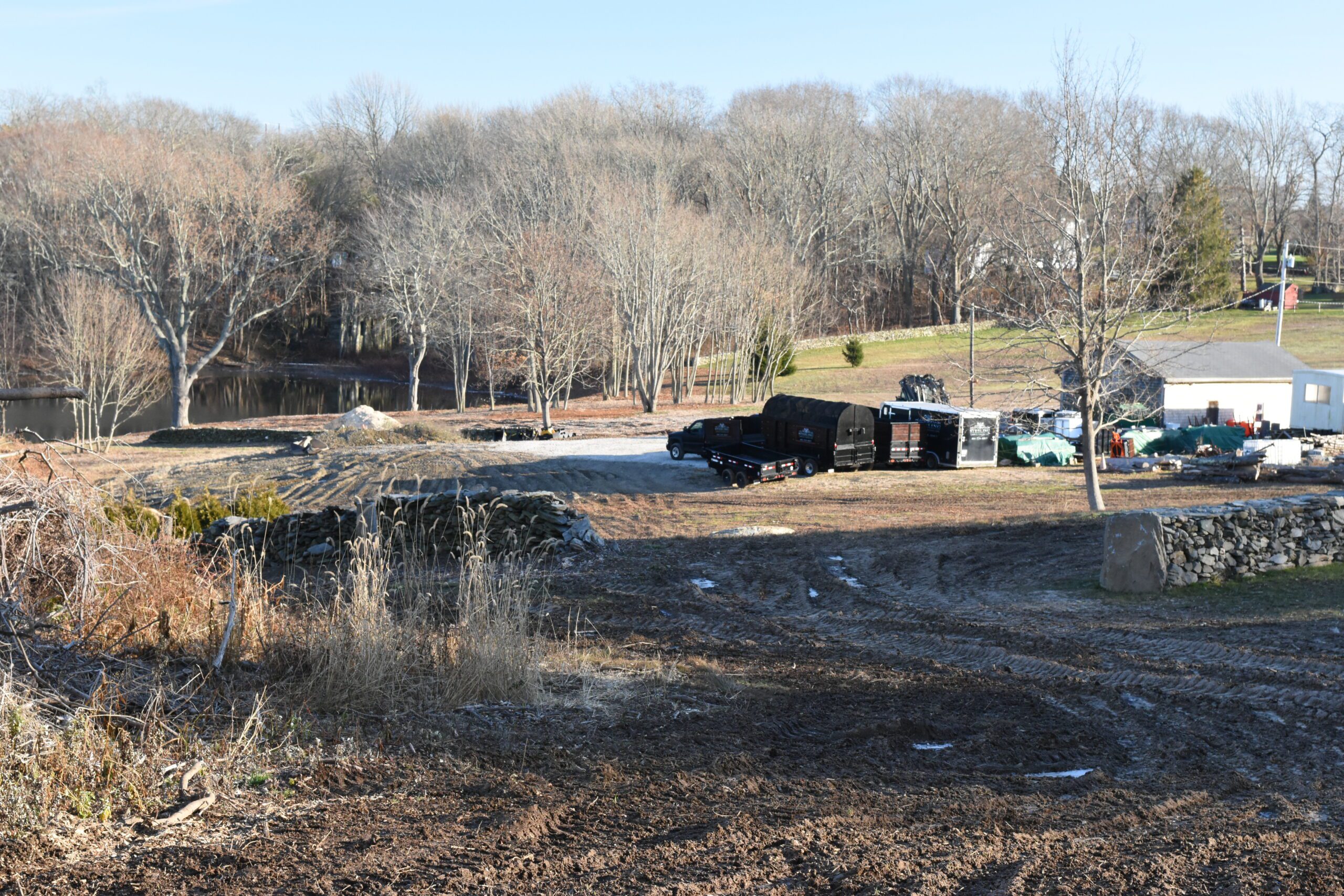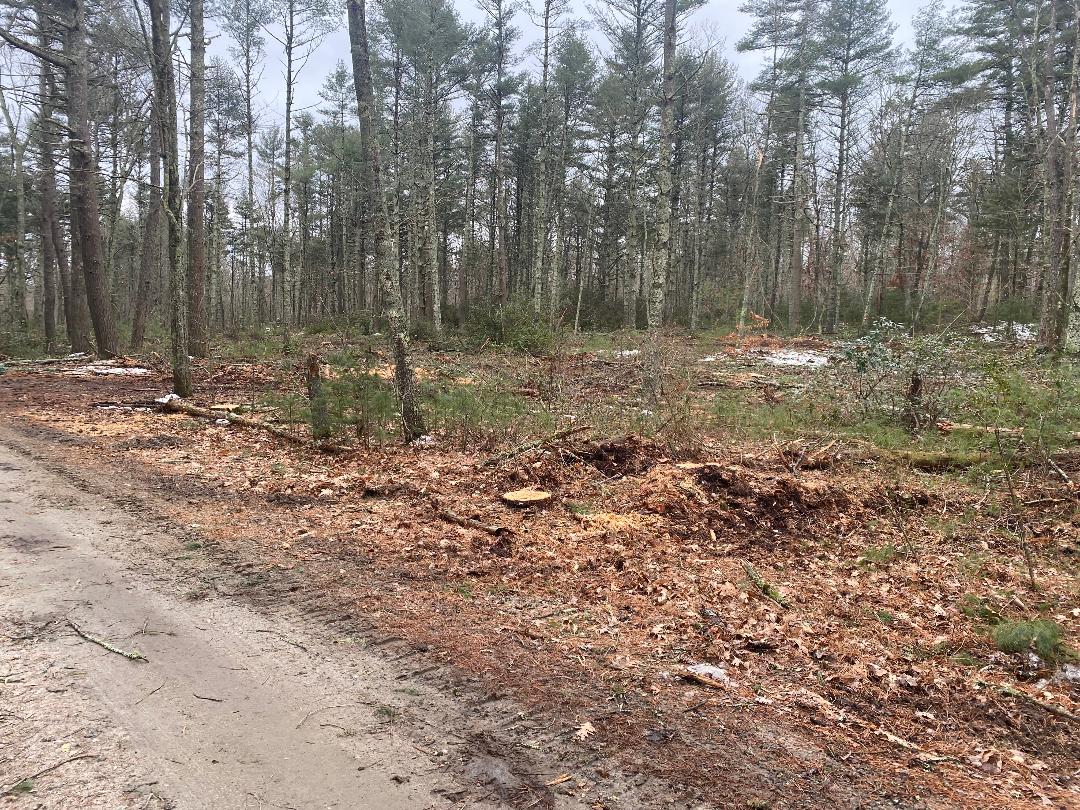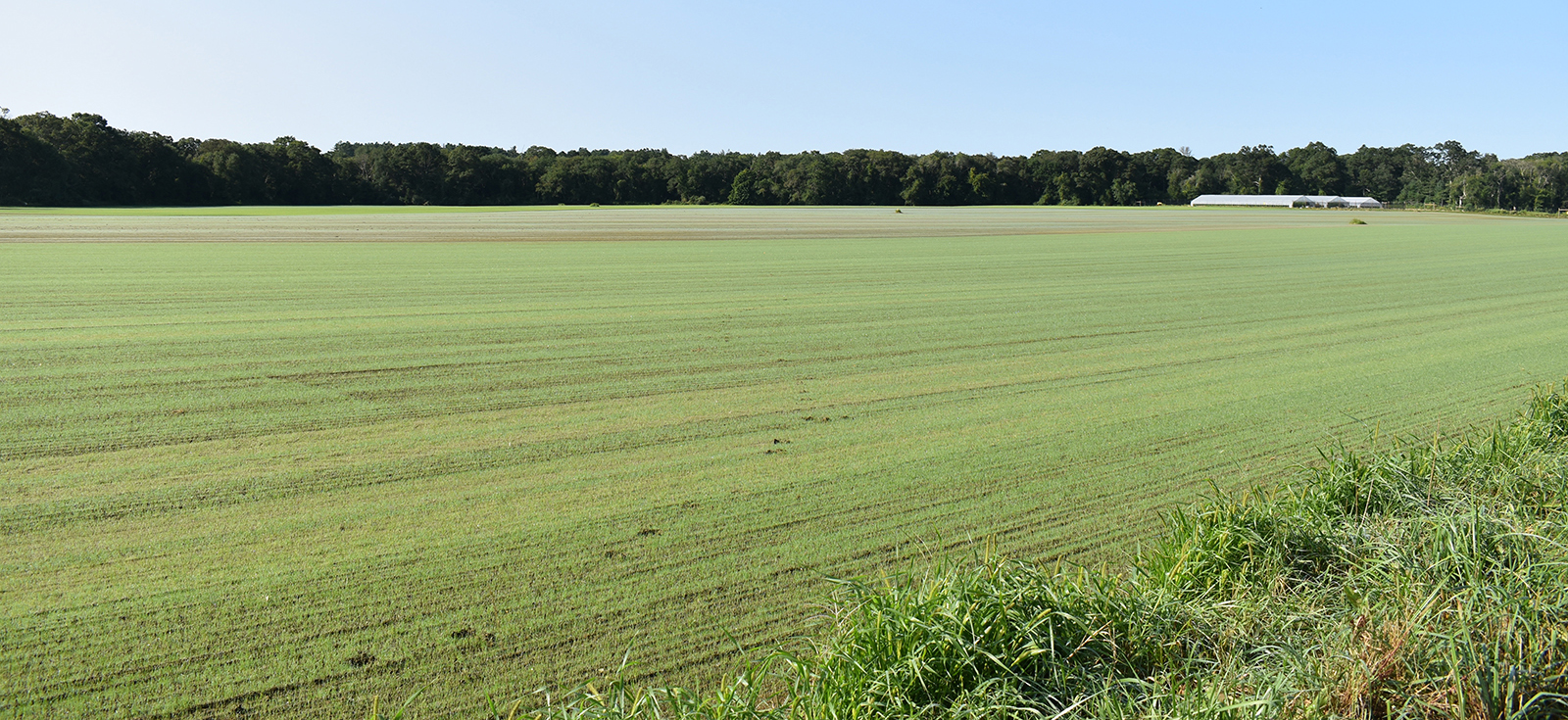Portsmouth Landowner Claims Newport Water Discharges Damaging His Property
March 14, 2022
PORTSMOUTH, R.I. — Good fences can make good neighbors, but not when your neighbor wrecks the fence.
An Aquidneck Island farmer whose property abuts the Newport Water Plant on West Main Road is accusing the utility of discharging 1.5 million to 2 million gallons of water onto his property twice a year. The water discharges from a culvert connected to one of two multimillion-gallon storage tanks before flowing into the Lawton Valley Reservoir.
“They flooded me out — it was incredibly dangerous,” property owner Christian Sullivan said. “I have all the correspondence.”
The discharges can last for hours or even days according to Sullivan, and often come without warning. When it first happened, he said he called it in to the water plant, assuming something had gone wrong, but then the discharges kept happening.
Newport Water’s abutting property is perched on a hill overlooking Sullivan’s farm. He said he’s been in danger of getting washed away by the discharge. The ground between the reservoir and the water tanks, only a few hundred feet from the farmhouse where Sullivan and his family live, is washed out from significant soil erosion.
Sullivan bought the 14.5-acre property in 2017 with the intention of returning it to farmland. According to Sullivan, the previous property owner hadn’t been using it as farmland for some time.
“I didn’t realize [Newport Water was] doing these discharge events, and in such force,” Sullivan said. “Apparently they were doing it before. I didn’t know because everything [on the property] was so overgrown.”
The land includes a farmhouse whose construction dates back to the 1880s. Sullivan keeps chickens close to the farmhouse, and said he wants to build a new barn. His ideal location for it happens to be directly in the path of the water discharges into the reservoir. He’s also been carefully reconstructing a series of stone walls on the property’s northwestern boundary, but a section of one has been breached by the discharges.

“There’s been water going over the property and historically has been since the ‘70s,” Newport Water director Robert Schultz said. “We relocated the outfall just within the last couple months to avoid the stockpiles and services [Sullivan] has on the property.”
Portsmouth town officials said they were unaware of any issue at the Newport Water Plant when ecoRI News reached out for comment. Town council Vice President Linda Ujifusa declined to comment. Town administrator Richard Rainer responded in an email that he was unaware of any specific operations at Newport Water.
“There is no action the town is considering that I am aware of,” Rainier wrote.
Schultz claims Sullivan’s work on the land has resulted in abnormally high levels of manganese in the nearby reservoir.
“It’s a direct result of work Mr. Sullivan has done on the property,” Shultz said. “Exposing excessive amounts of soil, the stockpiling, the clearing, the spike in the raw water has been directly correlated [to] when he started doing activity on his property.”
Manganese is a common, naturally occurring mineral typically found in surface waters, groundwater, soil and rocks. It is an essential nutrient in small amounts, and can be found in foods such as grains, beans and nuts, but in high concentrations it’s toxic to humans. Children and adults that consume water with elevated levels of manganese over a long period of time can experience problems with memory, attention and impaired motor skills. While hardly the No. 1 public enemy of drinking water in Rhode Island, the state’s water utilities fight to keep manganese levels under control.
Schultz said the utility has an easement over the property, and Sullivan has been violating it with his extra activities. But Sullivan, who runs a landscaping business, disputes that, saying his trucks are stored on the property, but there’s nothing happening beyond what’s needed to restore the farm.
Sullivan hired a lawyer to try to stop the discharges, but any legal avenues have thus far been unsuccessful, he said. It has put him in a rough place, he added, as any dollar spent on legal costs is a dollar taken from the farm.




When he purchased the property, there would have been a title search done and the easement should have been revealed. Maybe he can sue the title attorney for faiure to reveal the easement. There also should have been something about water release.
Why don’t they just extend the pipe to the reservoir?
Interesting piece. It seems hard to believe someone could buy a piece of land like that without finding out somehow that so much water goes through this land. It doesn’t really seem like this should be a “buyer beware” case.